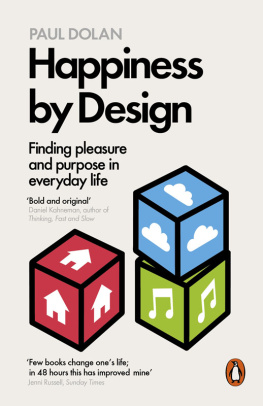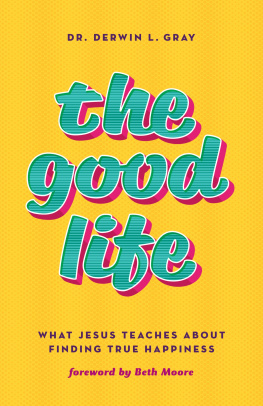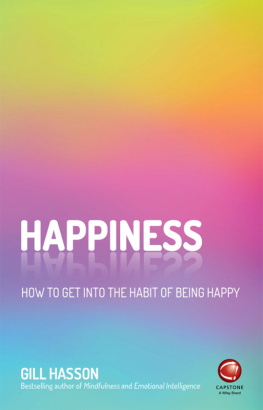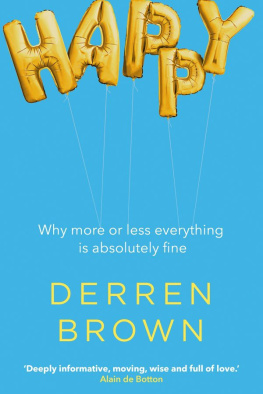
Paul Dolan
HAPPY EVER AFTER
Escaping the Myth of the Perfect Life

Contents
- PART ONE
Reaching - PART TWO
Related - PART THREE
Responsible
Introduction
There are countless stories about how we ought to live our lives. We are expected to be ambitious, to find everlasting love and to take good care of our health. The particularly dominant social narratives can serve to make our lives easier, by providing guidelines for behaviour, and they might sometimes make us happier too. But they are, at their heart, stories and ones that may not have originated with present-day people in mind. As such, many of these stories end up creating a kind of social dissonance whereby, perversely, they cause more harm than good. They become what I will refer to as narrative traps, which together form the myth of the perfect life.
THE WORKING-CLASS HERO
Since this is a book about stories, lets start with an experience of mine. Its about a working-class kid who becomes a university professor and who is expected to change his behaviour in accordance with a (harmful) narrative about how academics ought to behave. A couple of years ago, I took part in an interesting panel discussion on emotion versus reason at the HowTheLightGetsIn festival in Hay-on-Wye. Walking across the field to get some food, I was approached by a man in his fifties. Our interaction started well, with him saying how much he liked my first book, Happiness by Design. Then he asked, pointedly, But why do you have to play the working-class hero? I requested clarification. He said, You do it in your book and, look at you, youre doing it now. I had no idea what he meant by that, although I was singing Chim Chim Cher-ee and dressed as a chimney sweep.
Ordinarily, I would embrace being a hero of any kind but, in this context, I was made to feel like an arsehole. The man proceeded to lecture me on how when you reach a certain level you have to modify your behaviour. He told me that I should not swear: apparently I used the word fuck twice in an hour-long panel discussion. This crime was made all the more heinous since the panel contained two middle-aged women. You know: women, those fragile creatures who might have a nervous breakdown upon hearing an expletive used in a discussion as a means of emphasis.
So why shouldnt I swear? Perhaps because it is a sign of a poor vocabulary and/or low intelligence, and yet no such correlations have ever been found.
This man was insistent that, in my role as a professor at the London School of Economics and Political Science, I ought to be setting a better example to those who looked up to me. And by better he meant consistent with the prevailing impression of a university professor. (Take a quick look at the website of any department you like at the LSE or any other leading university and the pictures of the faculty/staff will neatly illustrate what I am talking about.) He was appealing to a social narrative that placed the burden on me to act in a particular way based upon my middle-class profession. The LSE treats me very well, but the general expectation to act in accordance with the narrow confines of academic stereotypes still causes me some misery from time to time. I especially struggle with how seriously academics take themselves.
More importantly, stereotypes of exactly this kind deter working-class kids from going to university, by making them feel that they would have to suppress who they really are in order to fit in. Great strides have been made in the UK and the US to overcome a bias against accepting students from working-class backgrounds. The LSE has increased its proportional intake of working-class students by more than any other elite university in England. This is commendable. But those cajoling working-class kids into higher education also need to consider that many of those kids really dont want to attend elite universities and mix with other kids who are different to them. Many working-class kids, especially boys, are reluctant to go to university because it involves hanging out with loads of middle-class folk, who think and act very differently, and being taught by middle-class teachers who cannot relate to their alternative world views. And even if they do survive this new environment, they then risk feeling alienated from a working-class background where they had always felt at ease.
In my experience, the well-intentioned middle-class folk trying to get working-class children into higher education assume those kids have middle-class aspirations. But many dont. I never have. OK, so I have a middle-class occupation, and my kids are undoubtedly middle class. But many of my friends have never been near a university and I retain some of my working-class values and behaviours. I weight train with bodybuilders. Seeing a blazer or a pair of loafers at a bodybuilding competition is as rare as rocking-horse shit. I am proud of these differences, yet I appreciate that my life would be easier if I fitted in with expectations placed on academics (or, alternatively, on bodybuilders).
Social narratives make prescriptions about what people should want, do, think and feel. They influence us whether we like it or not. We fall into a narrative trap when we get so carried away with a social story that we expect everyone around us to conform to it. If I am to be called a working-class hero, I want it to be in a way that shows working-class kids that they can pursue an unexpected career and still be themselves, and not in a punitive way that stifles authenticity. When we learn how to spot the narratives that get in the way of our happiness, we improve our chances of taking control of the stories that have for so long controlled us. Once we accept that we can be trapped, we can begin thinking about whether and how to change what we do. We might even, fingers crossed, end up with a few more bodybuilding professors.
WHATS THE STORY?
The kinds of stories I am interested in are those dealing with the way in which we ought to live our lives. This prescriptive definition of a narrative distinguishes it from most of what has been written about to date, which has focused on personal stories that help individuals to understand the vagaries of their own experiences and to form their own identities. Instead, my concern is with social narratives emanating from external sources, prescribed by others and adopted by you, and not necessarily informed by direct personal experience or positive feedback.
From a psychologists perspective, social narratives are akin to established social norms. There is no standard definition of a social norm but it usually contains some combination of these three elements: it comprises behavioural regularities; there is a sense of oughtness to it; and there are sanctions associated with deviating from it. As such, social norms have become fairly limiting behavioural rules that people are expected to follow, such as: If you are a professor at the LSE, then you dont swear, and so on. If we do not conform to what is expected of us, then we can incur some form of social punishment, be it as minor as an unsolicited verbal altercation.
An economists starting point for understanding any kind of behaviour is in the study of preferences: well-defined desires for certain goods, services, experiences and states of the world. A distinction is sometimes made between revealed preferences (what people do) and meta-preferences (what they would like to do). You might never read literary fiction but would like to be the kind of person who does. A distinction is also made between individual and social preferences: those that are motivated only by personal well-being as compared to those that additionally account for the impact of our behaviour on others. My definition of a social narrative can therefore be seen as a meta-social preference: it reflects a desire for how we should all behave.
Next page







